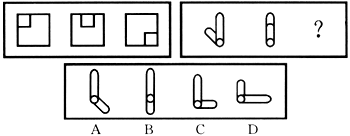Hi Brad,
It’s good to hear from you again. I find that I’m not good at writing compositions. It’s hard for me to prepare the form of a composition and organize sentences. ①Could you tell me how to deal with this problem? I would really appreciate if you offer me some good methods.
Best wishes,
Cindy
Hi Cindy,
A composition is really a story and any story is told to an audience. There is a form for this and it is in three parts. First, tell them(the audience) what you are going to tell them. Then tell them, and finally tell them what you told them. Parts one and three are short and most of the information is in part two. It works like this.
Let’s say you are asked to write a 200-word composition about your visit to the Great Wall. You would begin with an opening sentence or two saying something like “The Great Wall of China is a national ②landmark that is famous around the world. I visited it last summer and I want to tell you about it.” That uses about 25 words to tell them what you are going to tell them.
The second part would be about 150 words and would contain information about the Great Wall such as how long it is, when it was built, who built it and why, the fact that it is one of the seven wonders of the world and you would talk about how you felt and what you thought when you visited this national treasure. This is telling them.
Finally, you would use about another 25 words to say something like “That was my first visit to the Great Wall and it was a very emotional experience to actually touch something so old and famous.
③每个中国人至少参观长城一次.I plan to go back whenever I can.” Here, you are telling them what you told them in the story and wrapping it all up into a neat package. This formula(惯例)works for both compositions and speeches and I think you will find it helps to organize your thoughts. I hope it’s helpful.
Best wishes,
Brad Franklin
小题1:将文中①处的画线部分翻译成汉语: .
小题2:(A) 试写出文中②处画线部分landmark的汉语意思: .
(B)下面有四个在文中出现的单词,请找出画线部分发音哪个与众不同? .
A. work B. word C. information D. world
小题3:将文中③处的汉语翻译成英语: .
小题4:从文中找出适当的词组填空:How I wish to get a letter from you soon!
How I wish to _________ _________ you soon!
小题5:用英语回答问题:What’s the main idea of the passage?
小题1:你能告诉我怎样处理/解决这个问题吗?
小题2:(A) 地标;里程碑 (B) C
小题3:Every Chinese should visit the Great Wall at least once.
小题4:hear from
小题5:How to write a composition/an article?/ The way of writing a composition./ How to prepare the form of a composition and organize sentences.
题目分析:
小题1:考察短语deal with处理。注意疑问词+不定式可以起相当于宾语从句的作用。
小题2:联系上下文,可知此处指的是,中国的长城是一个闻名于世界的国家性地标。故答地标;里程碑。根据


 可知选C。
可知选C。
小题3:短语the Great Wall长城;at least once最少一次。
小题4:get a letter from="hear" from受到……的信。
小题5:联系第一封信的内容I find that I’m not good at writing compositions.……Could you tell me how to deal with this problem?可知第二封信的主要内容就是如何写作文。答案不唯一,符合题意即可。
点评:此类题型考查英语知识的综合运用,各小题类型比较复杂,涉及补全句子,翻译及阅读理解等题型,答题中要注意运用这些题型的答题技巧。答题前一定要弄懂全文,然后再动手解答问题。答题过程中,注意联系学过的句式,短语,结合短文内容,完成各小题的解答。

